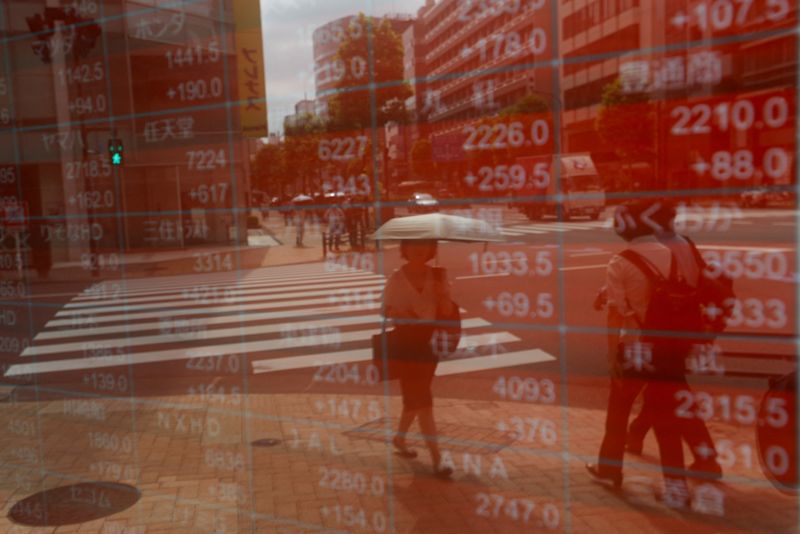AI Sentiment: Bearish
Reason: Asian markets are cautious amid uncertainty regarding the Federal Reserve's potential rate hikes, high bond yields, and geopolitical tensions. These factors are triggering a global bonds sell-off and slowing economic recovery.
Investors across Asia are treading cautiously due to the uncertainty surrounding the Federal Reserve's interest rate trajectory and high bond yields. The anticipation of a possible acceleration of rate hikes by the Fed to curb inflation has triggered a sell-off in global bonds, causing yields to soar.
The U.S 10-year Treasury yield, a key indicator for global borrowing costs, recently touched a high of 2.5%, a level not seen since before the pandemic. While this surge in yields makes U.S. debt more attractive to investors, it also raises borrowing costs, potentially slowing economic recovery.
Asian stocks have been affected by this dynamic, with Japan's Nikkei dropping by 1.7% while South Korea's KOSPI index fell by 1%. Meanwhile, MSCI's broadest index of Asia-Pacific shares outside Japan dipped 0.3%.
The People's Bank of China (PBOC), in an attempt to ease market volatility, injected 100 billion yuan ($15.68 billion) into the financial system. This was the largest single-day injection since September 2021. Despite this, concerns over policy tightening and the ongoing Russia-Ukraine conflict continue to weigh on sentiment.
In the currency market, the U.S. dollar remained firm against a basket of currencies. Its strength can be attributed to the rise in Treasury yields and expectations of more aggressive Fed rate hikes. On the other hand, the Japanese yen, traditionally a safe-haven asset, has been weakened by the Bank of Japan's commitment to keep its ultra-loose monetary policy.
Commodity markets have also been roiled by the Russo-Ukrainian conflict. Oil prices remain elevated, with Brent crude hovering around $110 a barrel, as concerns over supply disruptions persist. Gold, another safe-haven asset, has gained some ground but remains volatile amid the uncertain macroeconomic scenario.
In summary, global financial markets are on edge due to the potential for more aggressive interest rate hikes by the Federal Reserve, soaring bond yields, and geopolitical tensions. Investors are closely monitoring these developments, which could have significant implications for the global economy.




